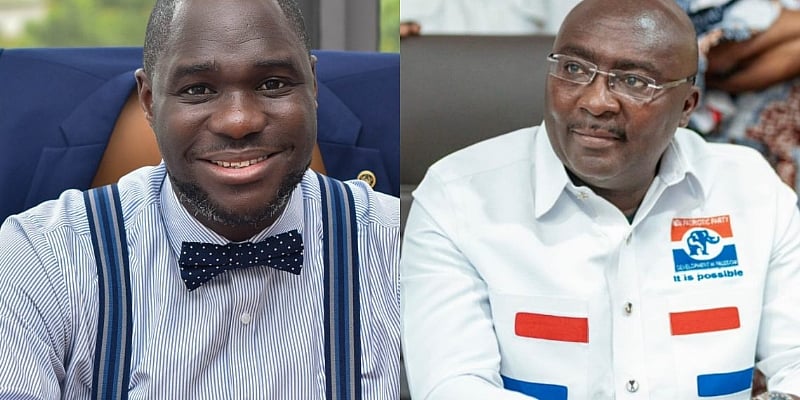The 2024 electoral defeat of the New Patriotic Party (NPP) has sparked intense internal debate and analysis, with prominent voices within the party offering differing perspectives on the factors that contributed to the loss. Governance analyst Dr. Palgrave Boakye-Danquah has put forth a controversial argument, attributing the defeat primarily to the rejection of the NPP’s presidential candidate, Dr. Mahamudu Bawumia, by his own ethnic group (Kusasi) and the broader Muslim community within Ghana. Dr. Boakye-Danquah contends that voting patterns in predominantly Muslim areas and within Kusasi communities demonstrate a clear lack of confidence in Dr. Bawumia’s leadership, significantly impacting the NPP’s overall performance. This assertion challenges the narrative presented by Dr. Bawumia himself, who has deflected personal responsibility for the defeat and instead directed attention towards a post-election report compiled by a committee headed by Prof. Mike Oquaye. This report purportedly outlines a broader range of reasons responsible for the party’s electoral setback.
Dr. Boakye-Danquah’s argument centers on the perceived disconnect between Dr. Bawumia’s identity and the actual voting behavior observed within his own community and religious demographic. He argues that despite expectations that Dr. Bawumia’s candidacy would galvanize support within these groups, the opposite occurred, leading to a significant drop in votes for the NPP in these regions. The analyst supports his claim by comparing Dr. Bawumia’s performance to that of former President Nana Addo Dankwa Akufo-Addo in previous elections. Akufo-Addo, despite not being from the North, consistently secured a higher percentage of votes in the northern region than Dr. Bawumia achieved as the party’s flagbearer, highlighting what Dr. Boakye-Danquah sees as a critical failure to consolidate expected support. This comparison serves as a key pillar in his argument, suggesting a fundamental flaw in Dr. Bawumia’s appeal to his own demographic base.
This analysis raises crucial questions about identity politics and the complexities of voter behavior within Ghana. Dr. Boakye-Danquah’s interpretation suggests that simply belonging to a particular ethnic or religious group does not guarantee electoral success and that other factors, such as trust, perceived competence, and specific policy positions, play a significant role in influencing voter choices. He emphasizes the need for the NPP to honestly confront these issues and understand why a candidate who was expected to perform strongly within his own community and religious demographic ultimately failed to deliver the anticipated results. This internal reflection, he argues, is essential for the party’s future electoral prospects.
Dr. Boakye-Danquah’s insistence on addressing this perceived rejection of Dr. Bawumia by his own community highlights a potentially sensitive issue within the NPP. Publicly acknowledging such a dynamic within the party could exacerbate internal divisions and create further challenges for future leadership selections. However, the analyst’s point underscores the importance of understanding the nuances of voter behavior and recognizing that assumptions based on identity alone can be misleading. By directly confronting these issues, even if uncomfortable, the NPP could gain valuable insights into the evolving political landscape and develop more effective strategies for engaging with diverse voter segments.
The contrasting perspectives of Dr. Boakye-Danquah and Dr. Bawumia expose a rift within the NPP regarding the interpretation of the 2024 election results. While Dr. Bawumia seeks to distribute responsibility for the defeat across a broader range of factors outlined in the Oquaye committee report, Dr. Boakye-Danquah focuses specifically on what he sees as a critical failure of the candidate to resonate with his expected base of support. This difference in opinion reflects a larger debate within the party about the path forward and the strategies needed to regain electoral success.
The analysis presented by Dr. Boakye-Danquah underscores the complexity of electoral politics and the need for parties to carefully analyze voter behavior beyond simple demographic categorization. His emphasis on understanding the specific reasons behind the perceived rejection of Dr. Bawumia within his own community raises difficult questions about the role of identity and the expectations placed upon candidates from specific ethnic or religious backgrounds. While controversial, his argument prompts a critical conversation within the NPP about the need for honest self-assessment and the development of more nuanced electoral strategies moving forward. Whether or not the party chooses to directly address these sensitive internal dynamics will likely play a significant role in shaping its future and its ability to regain the trust of voters across diverse communities within Ghana.














